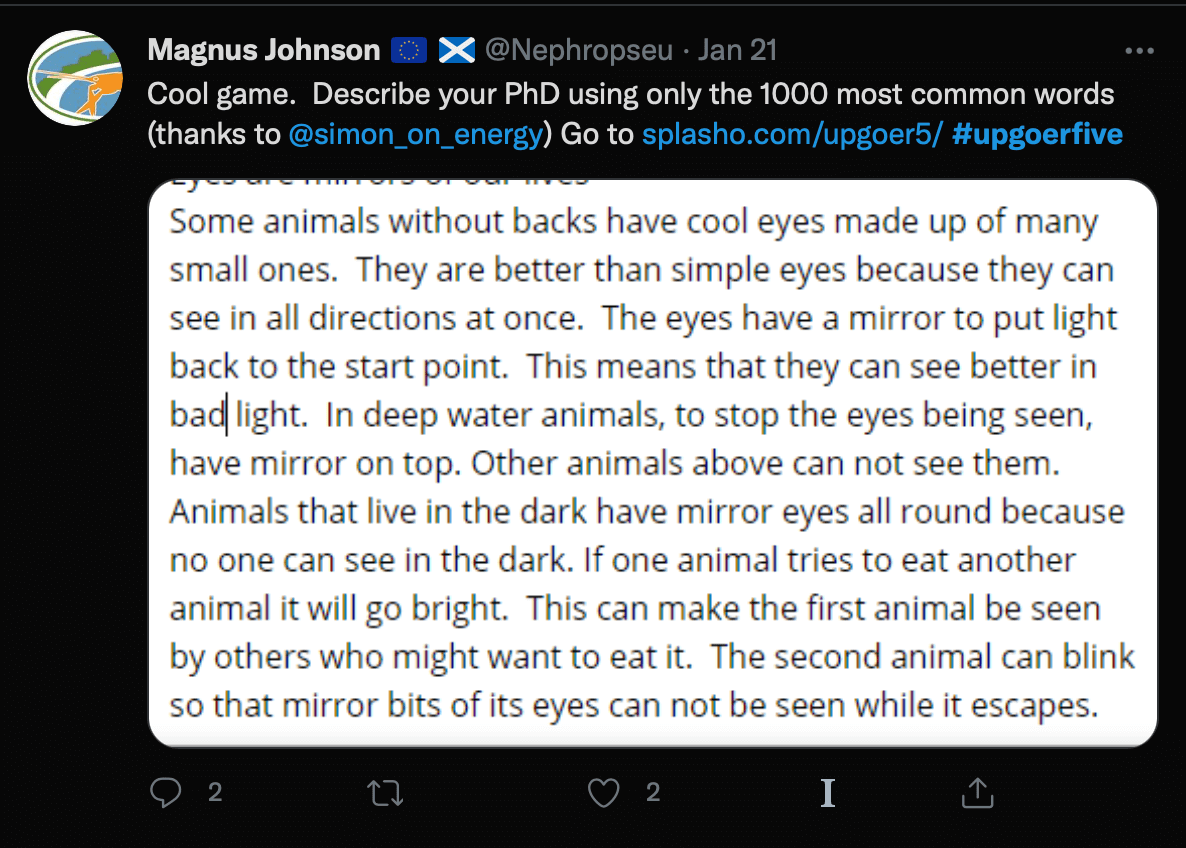Why I'm Down On Up Goer Five
The problem with being an introvert and thinking you have a fairly decent sense of humor is that you end up seeming like no fun because you're standing off to the side not laughing at things many other people find funny. I mean: puns? Most of "Fleabag"? Those dogs on Instagram with the Telly Tubby voices complaining about the vegetables their owner is trying to feed them? Everything on Saturday Night Live except once in a blue moon Kate McKinnon? We all have our lists.
Pretty high on my “sorry, not funny” list is the Up Goer Five Challenge, that seemingly harmless science conference nerd-bonding session that masquerades as a jargon-busting science communications skill builder. The Up Goer Five Challenge has been around for years, but I’d always dismissed it as just another make-work scicomm exercise. It’s more (or less) than that, I now realize. It contains some really pernicious assumptions about what public expertise is and how to achieve it.
ICYMI: Up Goer Five was originally an xkcd comic by xkcd creator and engineer Randall Munroe that explained the Saturn V rocket “in plain language” — extremely plain, as if it had been scripted by a canny two-year-old. Up Goer Five the comic was a big hit — so big with scientists that Up Goer Five Challenges were created, daring scientists to describing their research or work using only the thousand most-common words in the English language. (Here’s a dusty but still-live blog that used to collect many of the challenge entries, which quickly all start to sound the same. There’s also an online text editor where you can try your hand at the challenge.)
Here’s a typical example of an Up Goer Five Challenge entry:
Maybe it’s all in the delivery…
What fascinates me about Up Goer Five Challenges is how many researchers believe these exercises are an excellent way to improve their communications skills and how vigorously they defend them as effective despite very good and obvious arguments to the contrary. For example, science journalist Carl Zimmer has pointed out that the challenge limits you to the vocabulary of a preschooler and cuts off your ability to develop “your skill with metaphors and the other tools of language that make it possible to convey the gist of complicated ideas.” The evolutionary ecologist Stephen B. Heard also has reasonably argued that real people would feel condescended to and be offended if you tried to talk to them as if they were toddlers. And social scientist Xoco Shinbrot has made the case that Up Goer Five’s swapping in of simple words can actually make information more complicated to absorb, not less.
I’d go further. First, Up Goer Five Challenges reinforce the traditional researcher prejudice that "accessible" = transliteration, not translation and narrative. That accessible = conceptually impoverished (AKA, dumb). That accessible = pandering. That accessible = a state that can be achieved with tricks instead of investment of time and resources. And that any piece of science can be made “more accessible” just by removing its jargon.
If reducing your research or work to the 1,000-most common words is “accessibility,” the lesson we learn is that your work can only maintain its clarity (and integrity) for your most important audience (your peers) when it’s inaccessible.
Second: The Challenges pretend that accessibility is fundamental to communication. They ignore relevance — quite probably because so little science is actually relevant to any given community. It's far easier to pretend that everyone is a potential science communications target than to do the hard work of deciding who your strategic audiences are (and aren't) and crafting messages that directly address needs.
Up Goer Five Challenges fit nicely into the the bin of science communications trainings that make us feel better about ourselves while making the real problems around research communication slightly worse.
Told you I was no fun. :)




